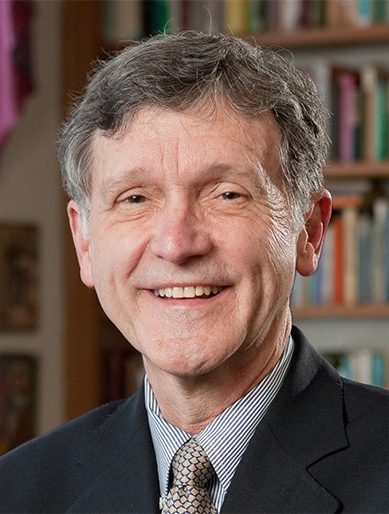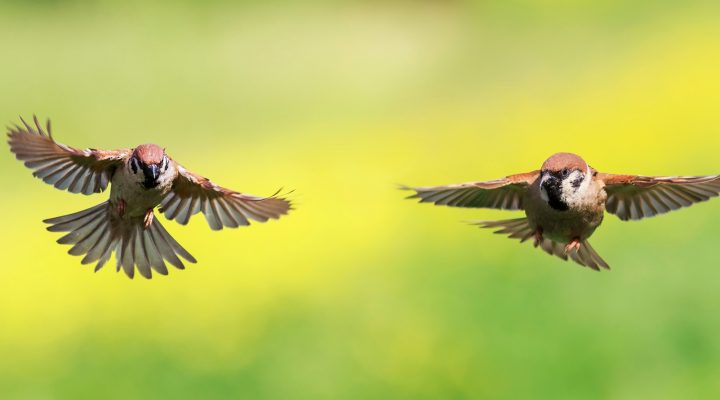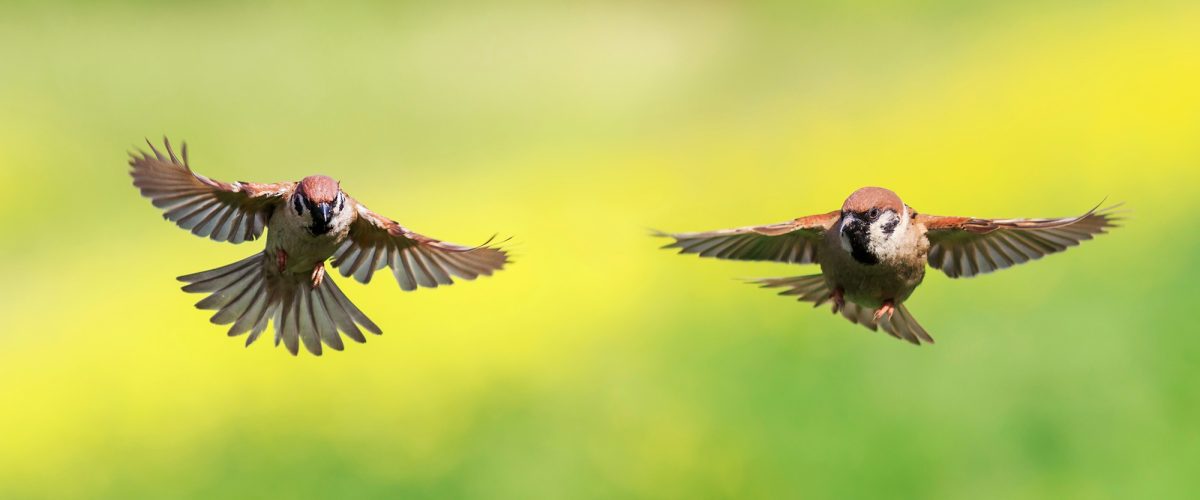The church was full of birds; at least it was when I was there. In January 2005, for about a week, I went to mass at 5:00 every morning in the Catholic church across the street from the Mekong River in Ben Tre, Vietnam.
I was there with a group of Wake Forest University students participating in a service project deep in the boonies, my third and final such Vietnam pilgrimage. We stayed in Ben Tre, the provincial capital, in a hotel next door to the Catholic church.

Bill Leonard
And every morning at 5:00, they rang the bells, a kind of Jesus fire alarm sounding across the darkness of the river and the town. And, by God — I’m speaking theologically here — people showed up, sandal-shod, filing in sleepily to receive the body and blood of Christ while roosters crowed in the courtyard and birds circled in the ceiling.
Men sat on one side of the church, women on the other, and before Mass began, they chanted the rosary antiphonally in a sanctuary filled with birds, (sparrows, mostly) chirping at the top of their lungs. The birds made their home under the eaves of the roof and since the windows were wide open, they happily joined the liturgy.
And each morning, I’d recall Jesus’ words in Matthew 6: “Look at the birds of the air; they do not sow or reap or store away in barns, and yet your Heavenly Father feeds them. Are you not much more valuable than they?” For six mornings of my life, I think I heard Jesus in the chants of Catholics and the chirps of sparrows, neither of whose languages I could understand at worship along the Mekong.
“For six mornings of my life, I think I heard Jesus in the chants of Catholics and the chirps of sparrows, neither of whose languages I could understand at worship along the Mekong.”
They were transformative, those three December/January Vietnam excursions with Wake Forest students and colleagues, especially the last one. On that trip, we went as far into the Vietnamese backcountry, loaded onto a bus each morning, ferried across the Mekong, and driven to a small village beyond which the bus could not go. Then teachers from the school where we were to work picked us up on their motorbikes, transporting us to a farming commune deep in the forest. There we spent our days assisting the teachers in completing their new two-room schoolhouse, funded in part with money the Wake Forest students raised.
At lunchtime, we joined Vietnamese locals and ate together in a house where our husband/wife hosts displayed photos of themselves in the pajama-uniforms of the Viet Cong some four or five decades earlier. When the meal was over, they insisted we rest, spreading us around their spacious dirt-floored dwelling, putting three guys, including Wake Divinity student Lee Hill, in an oversized bed. On the first day, I grabbed a chair and leaned against the doorpost, but the host would have none of that. She strung up a hammock and ordered me into it.
Watching that hospitable moment, the seminarian’s eyes filled with tears.
“Bill,” he asked, “have we entered the kingdom of God?”
“Close enough,” I responded, “close enough.”
And for one brief shining moment, Americans and Vietnamese were overcome by an experience of grace; and the freedom of God’s New Day came near.
“For one brief shining moment, Americans and Vietnamese were overcome by an experience of grace.”
Again, the words of Jesus in Luke 10 struck home: “Whatever house you enter, first say, ‘Peace to this house!’ And if a person of peace is there, your peace will rest on that person, but if not, it will return to you. Remain in the same house, eating and drinking whatever they provide.”
Ever so briefly, the taste of peace was oh so sweet.
Then came New Year’s Eve. We got permission from the local authorities to remain after dark, celebrating with the townspeople, eating and drinking together. But near midnight, a group of inebriated young men surrounded the only African American female in our group and began chanting abusively toward her. Town leaders quickly extricated the terrified young woman from the crowd, summoning the teachers and their motorbikes to whisk us out of the village. We welcomed the year 2005 hurtling through the darkness of the Vietnamese outback, holding on for dear life, ever reminded that racism knows no national boundaries.
Returning to the U.S. and reflecting on the chanting and the chirping, the welcome and the danger, I happened onto a 2006 New York Times editorial in which writer Verlyn Klinkenborg explains why he and his spouse live in Vermont, in the country, next to nature. He writes that “it really comes down to living as close to wildness as we can.” Because, he continues, “the grace of wildness changes somehow when it becomes familiar.”
Klinkenborg tells of the foxes and other varmints that live all around his rural home and then concludes: “When I say the grace of wildness, what I mean is its autonomy, its self-possession, the fact that it has nothing to do with us. The grace is the separation, the distance, the sense of a self-sustaining way of life.”
Over the years, ideas regarding the grace of wildness have impacted my reflections on experiences in Vietnam and beyond. It is not the kind of wildness that creates the momentary high, the quick fix or the sloppy ending — sometimes disgusting, sometimes wonderful moments, temporary signs of liberating exuberance or unscrupulous decadence.
Rather, the grace of wildness involves a kind of spiritual and intellectual restlessness, an inexplicable bravery in the face of natural and unnatural odds, and the illusive wisdom of a “self-sustaining way of life.” It can apply not simply for things in the wild, but with implications for confronting the challenges of church and culture in this “present evil age,” as Saint Paul called his own times.
“As 2023 begins, the USA exudes considerable wildness, but there’s not a lot of grace in it.”
As 2023 begins, the USA exudes considerable wildness, but there’s not a lot of grace in it. Nature seems to have rebelled against changes we’ve set in motion. Our sense of community seems ever so fractured and divided; our politics a ceaseless battleground, while in our schools and libraries history itself has become a torturous battleground. Even our churches often seem at odds internally, externally and sometimes irreconcilably. How do we find grace among the unhealthy wildness of our current environment?
Scattered experiences in Vietnam continue to remind me that grace can prevail amid wildness. In January 2005, our Vietnam sojourn ended when the school was dedicated and our Wake Forest team departed the village amid the hugs and tears from brief but astonishingly profound encounters. A year later, one of our Wake Forest colleagues returned to the commune and discovered that while the school was still intact, much of the village had been washed away in a devastating typhoon. The house where we took meals and naps was gone, and only the wooden beams and doorposts remained, waiting on an anticipated rebuilding.
She also found that after our departure, our hosts, the former Viet Cong, carved each of our names on the beam at the entrance to what had been and would be again their home — an unanticipated memory of grace, engraved quite literally on a doorpost in a Mekong Delta commune. Citizens of two warring societies found opportunities for peace and friendship.
Will such halting, albeit singularly overpowering, moments eradicate decades of geo-political, ideological conflict in Vietnam, Iraq, Russia, Ukraine, Israel/Palestine, or Washington, D.C.? Of course not. Two-room schoolhouses and names on Viet Cong doorposts won’t transform complex global wildness any time soon.
But today, on the cusp of a new year, we cling to God’s grace wherever it appears — a mixture of sadness and expectation, yearning for a new way of life, a determination that, against all odds, we can work for transformation in ourselves, in our societies, and in this world.
Wild ideas, thank God.
Bill Leonard is founding dean and the James and Marilyn Dunn professor of Baptist studies and church history emeritus at Wake Forest University School of Divinity in Winston-Salem, N.C. He is the author or editor of 25 books. A native Texan, he lives in Winston-Salem with his wife, Candyce, and their daughter, Stephanie.
Related articles:
How to win the war between keeping the peace and telling the truth | Opinion by David Gushee
On praying for peace in Jerusalem | Opinion by Patrick Wilson
Four decades ago we sponsored two Vietnamese refugees. It changed lives – theirs, ours and America’s | Opinion by Norman Jameson


